
EnkiPhoto/iStock/Getty Images
Standing at a cheese counter, with the almost-dizzying array of cheeses available, can make choosing a good cheese overwhelming. Pecorino cheese is a favorite in Italy and makes a tasty, nutritious addition to your appetizers, pasta and casseroles. However, like all cheeses, the beneficial nutrients pecorino contains should be balanced against its negative aspects if you’re trying to follow a healthy diet.
Identification
In Italy, all cheese made from sheep’s milk are called pecorino. Most varieties are aged and classified as grana, or hard and granular, with a sharp flavor, and are colored white or pale yellow. The most popular is Pecorino Romano with a hard yellow rind, but other favorites include Sardo, Siciliano and Toscano. Pecorino cheeses are mostly used grated for toppings and also in cooking.
Nutritional Content
One oz. of pecorino cheese has around 110 calories, with 30 mg of cholesterol, 7 g of protein and 8 g of fat, 7 g of which are saturated fat. At 550 mg of sodium per oz., it’s one of the saltiest cheeses available and can be used as a substitute for some of the salt added to a recipe. Pecorino has approximately 8 percent of your recommended daily allowance of vitamin A and 25 percent of your RDA of calcium. All cheeses, including pecorino, contain vitamins B2, niacin, B12 and D, plus minerals such as zinc and phosphorus.
Safety
Store whole pecorino in your refrigerator at a temperature between 35 and 40 degrees Fahrenheit, wrapped in parchment or wax paper in a resealable plastic bag. If it’s been shredded or grated, you’ll need to keep it in an airtight container. Properly packaged cheese can last for a few weeks in the refrigerator, but can be kept up to six months in the freezer. Hard cheeses like pecorino tend to resist spoilage longer, but semi-soft cheeses like Pecorino Romano are more prone to mold and the bacteria that grow along with it. Soft cheese is particularly prone to the Listeria monocytogenes bacterium, linked to serious illness.
Benefits
A study by Professor Sebastiano Banni and colleagues conducted in Sardinia, Italy from 2003 to 2009 at the Universities of Sassari and Cagliari found that pecorino cheese contains higher amounts of conjugated linoleic acid, or CLA, than other cheeses. CLA is an omega-6 polyunsaturated fatty acid that has been studied for its ability to fight cancer and help prevent coronary artery disease, diabetes and obesity. The study showed that human subjects fed approximately 3 oz. daily of pecorino cheese enriched with CLA for three weeks decreased their plasma LDL cholesterol levels as well as reducing their body mass index.
Considerations
Many organizations, like the Mayo Clinic, recommend avoiding foods high in saturated fats including full-fat pecorino cheese. They say to switch to fat-free or low-fat versions instead in order to promote a healthy heart. Other health experts, including Timothy S. Harlan, M.D., known as “Dr. Gourmet,” believe that full-fat cheese is fine, but you should buy a higher-quality cheese with superior flavor and just use smaller portions. The bottom line is that if have heart disease, high cholesterol or are concerned about your heart health, you should consult your health care practitioner about whether full-fat cheese is right for you.
Related Articles

Cheeses Similar to Feta

Substitute for Shredded Parmesan Cheese
Can I Eat My Cheddar Cheese Past the ...

Fresh Mozzarella vs. Regular Mozzarella ...

How to Store a Cheese Wheel With a Wax ...
How Long Can I Store Grated Pecorino ...
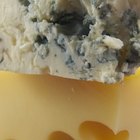
How to Freeze Cheeses

How to Order Cooper Sharp Cheese

What Type of Microorganism Is Used to ...

The Difference Between Fresh Cheese & ...

Does a Sliced American Cheese Product ...
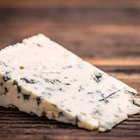
Does Blue Cheese Spoil?
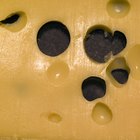
What Types of Cheeses Are Unpasteurized?

How to Store Cheese

How to Store Parmigiano Reggiano
List of High Temperature Cheeses

Which Cheeses Go With Honey Ham?
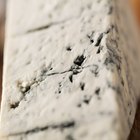
What Good Bacteria Is in Cheese?

Types of Cheese Used in Pizza
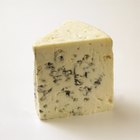
The Dangers of Roquefort Cheese
References
Resources
Writer Bio
Bonnie Singleton has been writing professionally since 1996. She has written for various newspapers and magazines including "The Washington Times" and "Woman's World." She also wrote for the BBC-TV news magazine "From Washington" and worked for Discovery Channel online for more than a decade. Singleton holds a master's degree in musicology from Florida State University and is a member of the American Independent Writers.
Photo Credits
EnkiPhoto/iStock/Getty Images